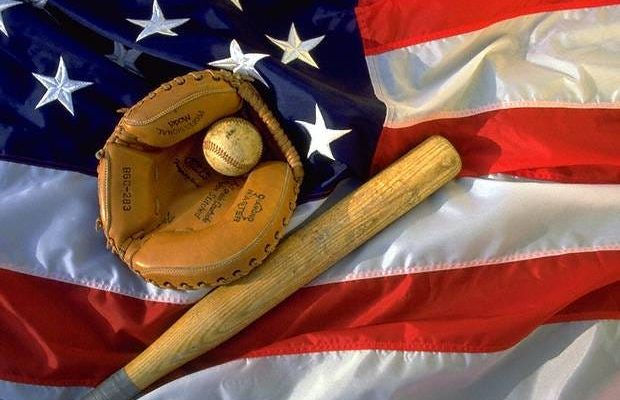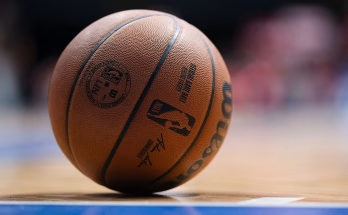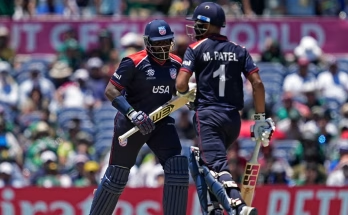Baseball has long been heralded as America’s national pastime. Rooted in the nation’s history and culture, the sport has grown from humble beginnings into a multi-billion-dollar industry, captivating fans across the globe. While its popularity faces competition from other sports, baseball remains an integral part of American identity.
Origins and Early Development
Baseball’s exact origins are a matter of debate, but the sport as we know it today took shape in the mid-19th century. Early versions of bat-and-ball games, such as rounders and cricket, influenced its development. The first recorded baseball game in the United States was played in 1846 in Hoboken, New Jersey. The New York Knickerbockers, a club led by Alexander Cartwright, established some of the foundational rules of modern baseball.
In 1869, the Cincinnati Red Stockings became the first professional baseball team. Their success spurred the establishment of professional leagues, including the National League in 1876 and the American League in 1901. By 1903, these two leagues agreed to coexist under the Major League Baseball (MLB) banner, with the World Series becoming an annual championship.
Baseball’s Golden Age
The early 20th century is often referred to as baseball’s “Golden Age.” During this time, players like Babe Ruth, Ty Cobb, and Lou Gehrig became household names. Stadiums filled with enthusiastic fans as the sport solidified its place in American culture. Ruth’s incredible batting feats with the New York Yankees helped elevate the sport to new heights, making it a staple of American entertainment.
Baseball’s reach extended beyond the field. Radio broadcasts in the 1920s and 1930s brought games into homes, connecting fans across the country. By the mid-century, television further expanded the sport’s audience.
Breaking Barriers
While baseball thrived, it also reflected the racial divisions of its time. The sport was segregated for decades, with African American players barred from MLB. Instead, they showcased their talents in the Negro Leagues, a collection of independent leagues that produced legendary figures like Satchel Paige and Josh Gibson.
This segregation began to crumble in 1947 when Jackie Robinson broke the color barrier by joining the Brooklyn Dodgers. Robinson’s courage and skill not only transformed baseball but also contributed to the broader civil rights movement. His impact paved the way for other players of color, reshaping the sport’s demographics and inclusivity.
Modern Era and Global Influence
Baseball has evolved significantly in the modern era. The integration of international players, advanced technology, and analytics has transformed the game. Today, MLB rosters feature athletes from countries like Japan, the Dominican Republic, Venezuela, and South Korea, reflecting baseball’s global appeal.
Iconic players like Derek Jeter, Albert Pujols, and Shohei Ohtani have captivated fans in recent decades. The introduction of interleague play, wild card teams, and expanded playoffs has added excitement to the league. Additionally, initiatives like the World Baseball Classic have brought nations together in competition, further promoting the sport worldwide.
Challenges and Adaptations
Despite its rich history, baseball faces challenges in the modern sports landscape. Competing with faster-paced sports like basketball and football, MLB has worked to adapt. Efforts to shorten game times, such as pitch clocks and automated strike zones, aim to maintain fan engagement. Moreover, the league has embraced social media and digital streaming to connect with younger audiences.
The rise of advanced analytics, or “sabermetrics,” has also transformed how teams approach the game. Strategies like defensive shifts and bullpen usage have changed gameplay dynamics, sparking debates among purists and progressives.
Cultural Impact
Baseball’s influence extends beyond the diamond. It has inspired countless works of art, literature, and film, from Ernest Thayer’s poem “Casey at the Bat” to movies like Field of Dreams and Moneyball. The sport’s lexicon has permeated everyday language, with phrases like “home run” and “strikeout” symbolizing success and failure.
Moreover, baseball has been a source of unity and healing. Following the September 11 attacks, games became a place for collective mourning and resilience. The Boston Red Sox’s 2004 championship broke an 86-year drought, creating a unifying moment for their passionate fanbase.
Conclusion
Baseball remains an enduring symbol of American culture. While the sport has evolved and faces competition in a crowded sports market, its legacy continues to thrive. With its unique blend of tradition, innovation, and global influence, baseball holds a special place in the hearts of fans and represents a timeless aspect of the American experience.




